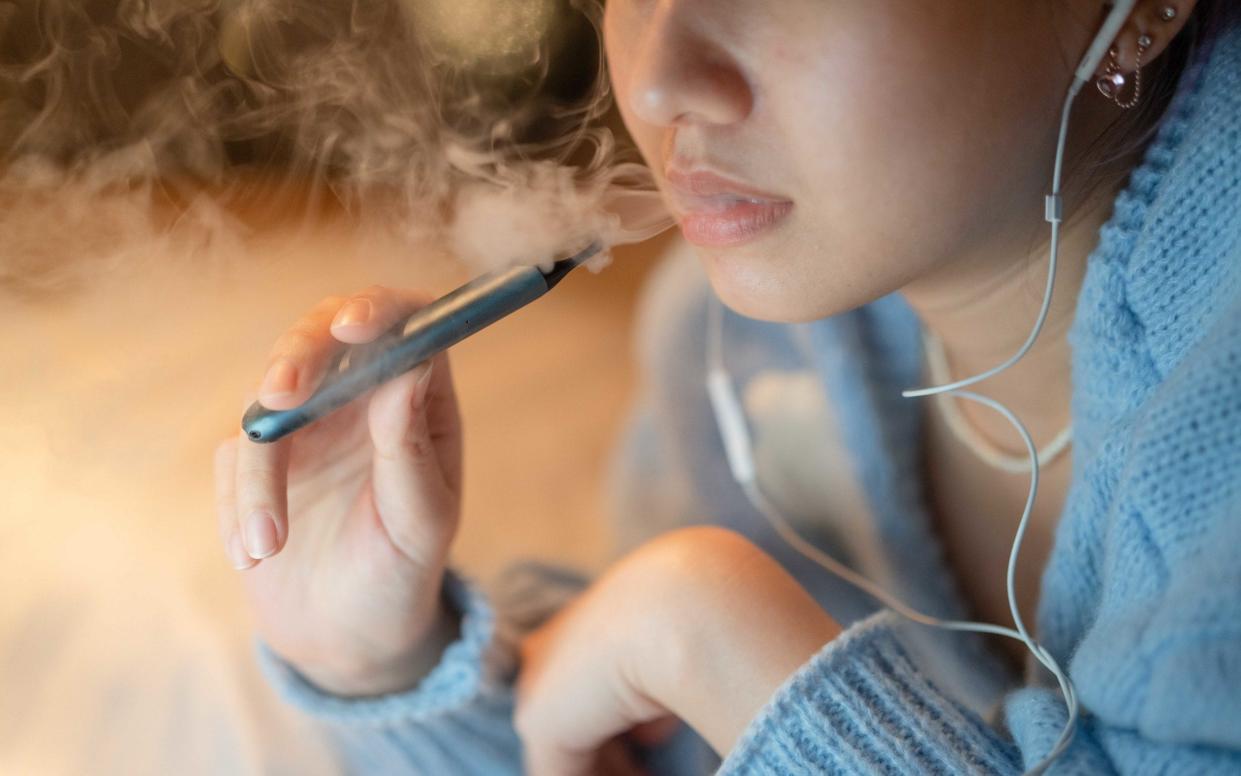Don’t vape if you want to have children, scientists tell women

Women should avoid vaping if they wish to have children, a report has found.
Female fertility company Hertility has released its second annual reproductive report, which features data from more than 325,000 women.
Figures suggest that vapers have lower levels of a protein called anti-Mullerian hormone (AMH), which is made by the sexual organs and is a useful proxy for determining a woman’s ovarian reserve and therefore her fertility.
Women who vape and are aged between 36 and 40 have a fifth less AMH than non-vapers, the report says.
Hertility claims this is the first time a link has been seen between vaping and fertility, and follows a robust body of evidence showing that smoking inhibits fertility.
The company found that around 22 per cent of women actively trying to conceive are smoking or vaping, and the figure rises to 27 per cent for women “planning for the future”.
Link between fertility and vaping
Dr Helen O’Neill, a UCL academic and expert in reproductive health and molecular genetics, and the chief executive and co-founder of Hertility, advised women to stop vaping to boost their odds of becoming pregnant.
“This is the first piece of evidence to show a link between fertility and vaping across a large population,” she told The Times.
“It shows that AMH is suppressed in vapers compared to non-vapers, in a similar way to what has already been shown in smokers. AMH is a hormone used to assess ovarian [egg] reserve, and therefore fertility.”
Dr O’Neill added that there was now clear evidence that women trying to get pregnant should stop drinking alcohol, smoking cigarettes, doing illegal drugs and cease vaping.
The report said there was now a common practice of women enjoying “one last year of fun” before getting pregnant and their life changing forever.
It added that this was not necessarily a bad thing, but women should be given all the advice available.
For example, 7 per cent of women actively trying to conceive still used recreational drugs and 4 per cent were drinking more than the NHS recommends for an adult not trying to conceive.
One in eight women who were hoping for a family in the future, but not right now, were still doing drugs, data show.
“Trying to drink in moderation can be a slippery slope when it comes to volumes and intake of wine or alcohol in a week,” Dr O’Neill said. “The best advice is to stop, as opposed to cutting down or trying in moderation.”

 Yahoo News
Yahoo News 
